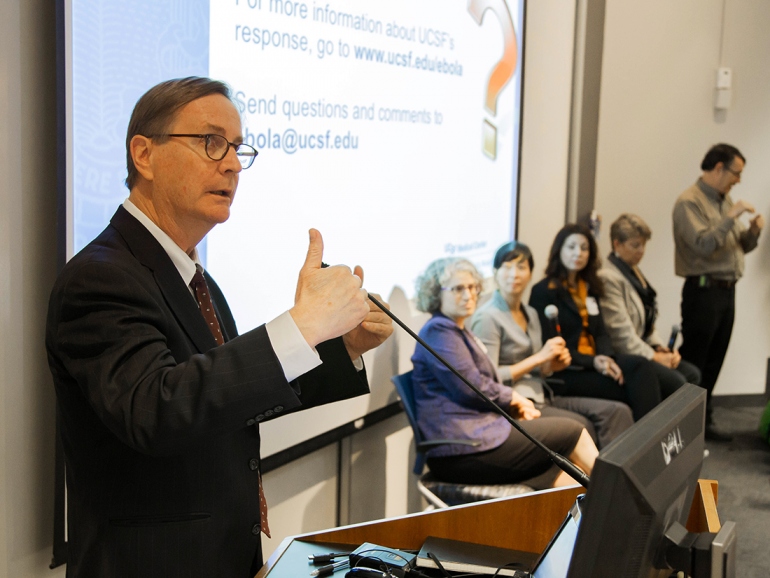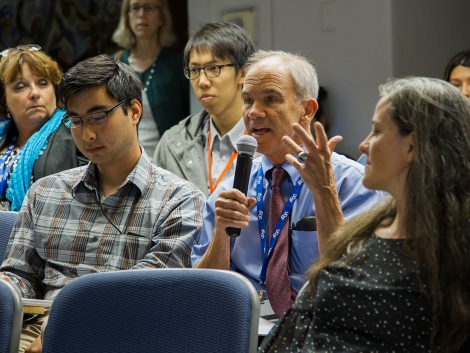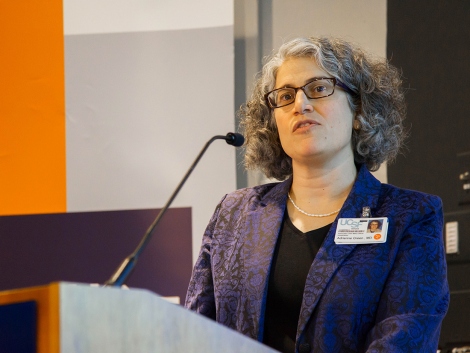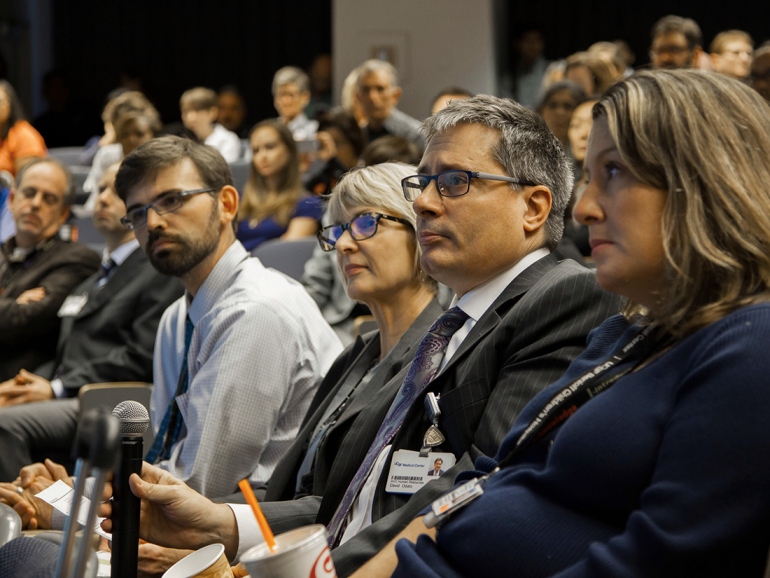Leaders Outline Ebola Treatment Preparations at Town Hall Meeting

Chancellor Sam Hawgood speaks to the UCSF community about plans underway to prepare for treating any possible Ebola cases.
UC San Francisco has undertaken significant efforts to prepare for the possibility that in the coming weeks or months a patient could need treatment for Ebola Virus Disease at UCSF Medical Center. These steps were outlined by UCSF Chancellor Sam Hawgood, MBBS, and UCSF Medical Center clinical leadership on Friday at a town hall meeting.
UCSF and the Ebola Response
UCSF's main Ebola Response resource page
Chancellor Sam Hawgood's Oct. 15 email to the UCSF community
While preparations have been underway since August, additional steps have been taken in recent weeks, including the identification and preparation of an isolation unit to care for patients, Hawgood explained.
His announcement followed shortly after the University of California Office of the President informed the California Department of Public Health (CDPH) on Friday morning that all five UC Medical Centers, including UCSF, are positioned to provide care for Californians who have confirmed cases of Ebola, if necessary.
“We will do this while ensuring the safety of our health care workers and campus community,” said Hawgood, who called the town hall meeting to inform faculty and staff about what UCSF has done and is planning to do in the coming months to prepare.

Audience member Michael Matthay, MD, asked how long it will take the CDC to confirm Ebola cases; it typically takes at least 48 hours.

Adrienne Green, MD, spoke about the importance of practicing and reinforcing safety protocols.
There currently are not any confirmed or suspected cases of Ebola in California. But in the event that UCSF Medical Center receives an Ebola patient, more than 70 physicians and doctors have already volunteered their services, leaders reported. Volunteer staff are undergoing intensive training.
“We are really serious about our protocol and procedure,” said Adrienne Green, MD, associate chief medical officer of UCSF Medical Center. The training strictly reinforces “that screening questions get asked, that patient are masked, and then escorted to isolation site and there’s no contact until personal protective equipment (PPE) is in place.”
In the upcoming weeks, all UCSF staff working at any potential points of entry for a patient – from clinics to hospitals to emergency rooms – will be trained on the proper screening protocol so they know how to proceed if a patient presents with risk of Ebola.
Beyond preparing for possible patients with Ebola in the Bay Area, several UCSF clinicians have gone to West Africa to treat those at the epicenter of the outbreak.
UCSF has prepared guidelines for personnel seeking leave to travel to the impacted areas to fight the epidemic in West Africa, said Hawgood.
“We honor this desire to serve and know that it must be balanced with the need to ensure everyone’s safety.”
For more internal-facing stories from the UCSF community, please visit Pulse of UCSF.

UCSF faculty and staff asked leaders questions about how to best prepare for a potential Ebola case.